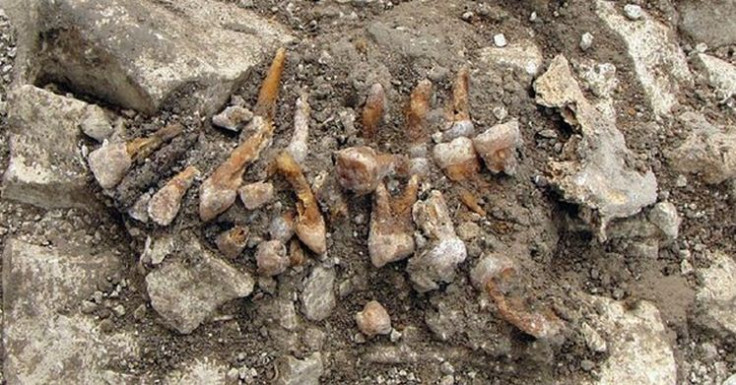Western Europe's Earliest Dental Implant Found in France

Archaeologists have found evidence of the earliest dental implant used in Western Europe in a third century BC grave in northern France.
Archaeologists found an iron pin in place of an upper incisor tooth in the remains of a young woman who had been interred in a richly furnished timber chamber.
According to the findings published in the June 2014 issue of Antiquity, the iron pin may have been inserted during her life to replace a lost tooth.
"The skeleton was very badly preserved. But the teeth were in an anatomical position, with the molars, pre-molars, canines and incisors," Guillaume Seguin, who excavated the young woman's skeleton in 2009, told BBC News. "Then there was this piece of metal. My first reaction was: what is this?"
Seguin noted that the burial occured around the time when the region's Celtic La Tene culture came in contact with the Etruscan civilisation of northern Italy.
If the skeleton's iron pin is a dental implant, it is likely that the Celts learned the procedure from the Etruscans who were known for their mastery of dentistry.
"The concept of the dental prosthesis may have been taken from the Etruscans by returning Celtic mercenaries," the archaeologists noted in the report. Although they added that "dental implants of this specific kind have not been found in Etruscan contexts."
However, archaeologists acknowledge that the rod may have been inserted after her death, to restore the visual integrity of the corpse.
© Copyright IBTimes 2025. All rights reserved.



















